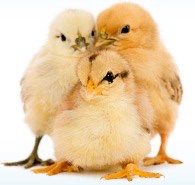FOLLOW





BEES



CHOOSE VEGAN is funded entirely by public donations. Animals depend on your generosity to continue vital work to expose and end animal abuse. Thank you for helping to free animals from cruelty.
HONEY
Bees farmed and manipulated
Honey, and other bee products such as beeswax, propolis and royal jelly, are animal products and therefore vegans do not consume or use them. In common with other animals kept to produce food products bees are farmed and manipulated, and the honey they produce for themselves is taken from them. Vegans do not eat products taken from any animal, including bees, because it is neither desirable nor necessary to exploit animals in order to obtain food for humans.
Burning hives
Farmed bees are vulnerable to insect attacks and diseases such as American Foulbrood and European Foulbrood, Varroa mites and associated viruses, which have increased significantly in the UK over the last 5-10 years, along with a decline in bee numbers. One method of dealing with American Foulbrood is to burn the hives while all the bees are inside.
A bee at work
To produce honey, worker bees drink nectar from flowers and store it in their honey stomach, where the nectar is mixed with secretions from two glands (including the salivary gland) which will transform the nectar into honey. On returning to the hive the worker bee transfers the nectar to a ‘house’ bee who drinks the nectar, and may regurgitate and re-drink it several times to mix more secretions with the nectar and may pass it on to another bee to do the same, and then places it in the honeycomb. Each worker bee will produce 1/12th of a teaspoon of honey in her lifetime.
How many bees
There are an estimated 40,000 beekeepers in the UK maintaining more than 200,000 colonies of honey bees, of whom 300 are commercial bee farmers with around 40,000 colonies. The majority of honey consumed in the UK is imported. UK honey production is normally around 4,000 tonnes per year, whilst more than 25,000 tonnes per year is consumed.




Bees declining
Bumblebees within the UK have been declining in the last 50 years







ABOUT US
MEDIA
CONNECT
SUPPORT
Choose Vegan
the voice for animals
CONTACT



Slaughter
The queen bee is usually killed every year and a new queen introduced to the colony. The queen may have her WINGS CLIPPED TO PREVENT HER FROM FLYING, this is to stop the bees carrying out their natural instinct to swarm (the old queen and a large proportion of the bees leaving the nest once the colony has provided a new queen to replace her).
Far from being just simple insects, bees have a complex communication system, display co-operative behaviour and take part in activities such as collective decision-making, organisation and conflict resolution.
Please Like Choose Vegan on Facebook:
Honey bees and other wild bees are declining
It is not only the bees that are kept for honey and beeswax that are endangered by humans. Wild bees are also threatened by man-made changes to their environment. For example the populations of bumblebees within the UK have been declining in the last 50 years. Two species have already become extinct, six are very rare. Biologists state similarly negative trends for bumblebees worldwide. Alterations of landscape, such as a decrease in the number of hedgerows, the use of pesticides, monoculture and general pollution have affected this development. Another threat is the use of commercial bumblebee colonies in greenhouses to pollinate plants. Exotic diseases are thereby brought to native bee species and escaped greenhouse bumblebees may become competitors for shelter and food.
The declining number of wild bees is not only a problem for the insects themselves; they are also important pollinators of crops. Some, such as particular kinds of beans and soft fruit or alfalfa and tomatoes, wont yield much fruit without the help of wild bees. A large proportion of the food production worldwide depends on pollination by wild bees which are important parts of ecosystems. The biodiversity of wild plants also benefits from their pollination as well as birds and bears do for berries and fruit.
Bee friendly gardening
In addition to avoiding the consumption of honey and other bees products, consider helping bees by adjusting your garden to the bees needs.
Many native wild flowers are a good source of nectar and pollen for wild bees. Just grow a varied range of flowering plants in order to provide food for the different types of bees, other insects such as butterflies will be attracted as well. Knapweed, Yellow bedstraw, Meadow buttercup, Cowslip, Oxeye daisy, Black medic, Field scabious, Selfheal and wild parsnip are examples of bee friendly plants. It wont make much work as the less you disturb your wild patch the better it is for all the bugs living there.
Apart from food, wild bees need shelter. For solitary bees, shelters are easy to make out of hollow plant or bamboo stems. Or screw holes of various diameters in pieces of wood and put them on a sunny, rain protected place. Bumblebees and other bees living in colonies require larger shelter. Dont remove hollow trees and abandoned birds or rodents nests as some social insects like to make their home there. Generally speaking, bees prefer gardens that are not too tidy. You can buy manmade shelters for wild bees as well.









